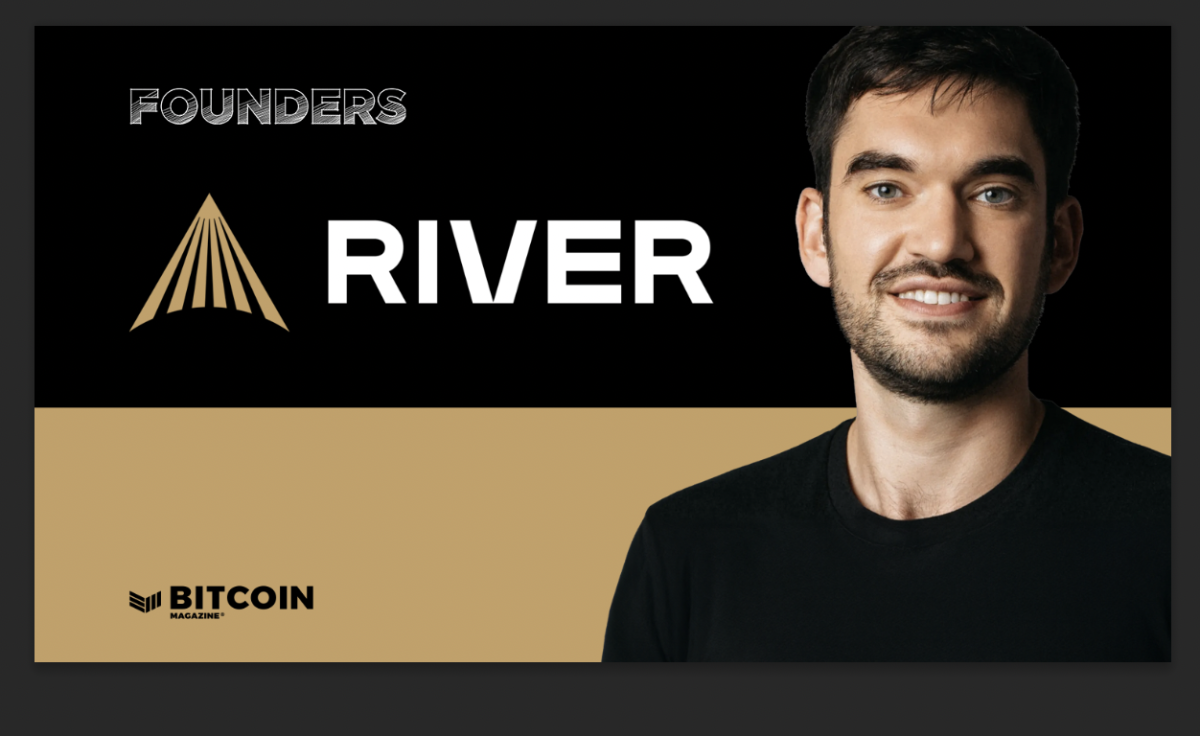River: Bitcoin Broker Built from the Ground Up


Company Name: river
Founder: Alexander Lishman
Date of Establishment: February 2019
Headquarters Location: Columbus, Ohio
Amount of Bitcoin held in the Treasury: Proof of Reserves Coming Soon
Number of employees: 50
Website: https://river.com/
Public or private? Private
How to make a Bitcoin-only brokerage profitable? The answer is not complicated.
Provide the highest quality service at the best price to as many people as possible.
This is the strategy used by Alexander Leishman and the River team.
And River’s high-quality service largely depends on staying true to what Leishman calls the “Bitcoin ethos,” which is at the heart of the philosophy that “it’s not about keys, it’s about coins.”
“At River, we took the slow and hard route, which allowed us to build our own custody system and actually store our customers’ bitcoin and operate as a financial institution,” Leishman told Bitcoin Magazine.
Since Leishman runs his business based on excellent education and professional foundation, it is obviously important to build a strong foundation.
engineer
Leishman earned a bachelor’s degree in aerospace engineering and a master’s degree in computer science from Stanford.
His resume proudly lists a range of careers, from robotics intern to cryptography researcher at Stanford University to software security engineer at Airbnb.
That said, he has exceptional technical skills, which is what you need when you’re securing millions of dollars worth of Bitcoin on behalf of your clients.
And despite all his knowledge and experience, he is humble enough to be mindful of the risks involved in what he does.
“The most important thing we value most of all is not to make mistakes,” Leishman said.
“People really underestimate how much that basically doesn’t happen. You have to be actively using 50% or more of your resources to curb entropy, to always improve your systems and processes, to build automation, to curb risk, to proactively prevent new risks,” he added.
“That’s actually where most of the work goes.”
In an industry notorious for exchanges going bust or losing customer funds, that’s a sobering statement. And Leishman knows it.
“It turns out there aren’t a lot of trustworthy people in this industry,” Leishman said.
“We’ve seen even the most regulated trust companies go bust. They’ll tell us they have this certification, this license, this, this, this. Then when it all comes out, we find out this guy had people deposit coins into a Ledger that he lost the keys to three years ago,” he added.
“So we do the work ourselves.”
Why Bitcoin?
Given how difficult it is to run a secure Bitcoin company, and the fact that Leishman has been able to make a good living in a variety of fields with his credentials and experience, why would he be interested in Bitcoin?
“The reason I became interested in Bitcoin was because I fell down the rabbit hole of economics in college,” Leishman recalled. “I started reading about Austrian economics and eventually Denationalization of currency “The book by Friedrich Hayek.”
He was drawn to the idea of challenging central banking as he became more aware of the dangers of all types of centralized power structures, from the Federal Reserve to supranational institutions like the European Union.
Before discovering Bitcoin, Leishman wanted to create his own form of currency that could not be controlled by governments.
“I wanted to create a commodity-based currency, but it would have been centralized,” he said.
“I didn’t know how to do it without going to jail, and I didn’t know how to do business with it,” he added.
“When I discovered Bitcoin, I was like, ‘Oh my gosh, this is a prophecy coming true. This is going to change everything.’ I just knew I had to work for this.”
And that’s what he did. After college, he finished a coding bootcamp and headed west to San Francisco to find work in what was then the birthplace of the U.S. Bitcoin industry.
Bitcoin and the Bay Area
“I didn’t have a job before I moved to the Bay Area,” Leishman recalled. “I moved there because that’s where bitcoin was at the time, and I wanted to be in the middle of it.”
But it didn’t take long for him to find a job. In March 2014, Leishman landed his first job in the Bitcoin field at MaiCoin, a Taiwanese Bitcoin exchange specializing in Bitcoin trading and payments.
At MaiCoin, Leishman identified and fixed security vulnerabilities and built an API used for merchant services.
Aside from his experience at MaiCoin, Leishman fondly remembers his time in the Bay Area.
“The culture was very different back then,” he said.
“The concept of Bitcoin maximalism was virtually non-existent. No one was upset about a new coin because people were basically going to use these to experiment with new ideas,” he added.
“It was much freer, more academic, people could try out ideas without the economic component, and it didn’t create a dichotomy between the scammers and the legitimate people.”
From one perspective, this may sound like a strange statement coming from someone who runs a Bitcoin-focused business. From another perspective, it seems likely that Leishman learned a number of first-hand lessons while in San Francisco about why Bitcoin is different from all other crypto networks and assets.
Moreover, he said, “Everyone knew Bitcoin was king, and no one was challenging it.”
After MaiCoin, Leishman completed his graduate studies at Stanford, where he worked as a teaching assistant for Bitcoin and other cryptocurrency courses taught by Dan Boneh, co-founder of the Stanford Computer Security Lab, and later built secure infrastructure for asset management at Polychain Capital, a cryptocurrency hedge fund.
In early 2019, he was ready to start his own business.
build a river
Leveraging what he learned about cryptocurrency security and payments, Leishman set out to build a Bitcoin platform that would not only have a best-in-class multi-sig security model for client funds, but would also make it easier for users to use Bitcoin as a medium of exchange via the Lightning Network. River would provide users with a custodial Lightning wallet.
Leishman explained that building all of River’s infrastructure is what sets it apart from other companies: When brokers use a third-party custodian, they give up control over what they can offer to their clients.
“They can only use whatever a third party decides to build,” Leishman said of exchanges that don’t build their own custodial infrastructure. “And all of those third parties are multi-coin custodians that don’t prioritize bitcoin.”
With Leishman assuming the roles of CEO and CTO, River has a distinct advantage in forging its own path.
“If you think like a good engineer, you’ll be a good business,” Leishman said.
“I’m the guy who leads the company. I know how to make what we need to make. I know how to deliver what we need to deliver to our customers,” he added.
“For a company like ours, we think this is the right prototype.”
More of the same right now
Although Bitcoin is becoming increasingly popular as a store of value, Leishman believes it still has a long way to go before it becomes a widely accepted medium of exchange.
And River’s main business is brokerage services.
“We make most of our money from bitcoin brokerage,” Leishman said.
He also noted that River also generates revenue from other services, such as operating two major Lightning nodes, but the revenue generated there is minimal compared to the revenue the company makes from its brokerage service, which River is constantly working to improve.
“There is always more we can do to make the sign-up and purchase process simpler and higher quality,” Leishman said. “And with a protection service, you feel like all your security needs are met.”
“Also, the really difficult part is interfacing with the fiat currency system. So I think the big trend we expect to see over the next three to five years is that Bitcoin will continue to grow as a store of value,” he added.
“We’re entering an era where people are saving in dollars and bitcoin, and seamless back and forth between bitcoin and fiat currencies is something we’re focused on.”



